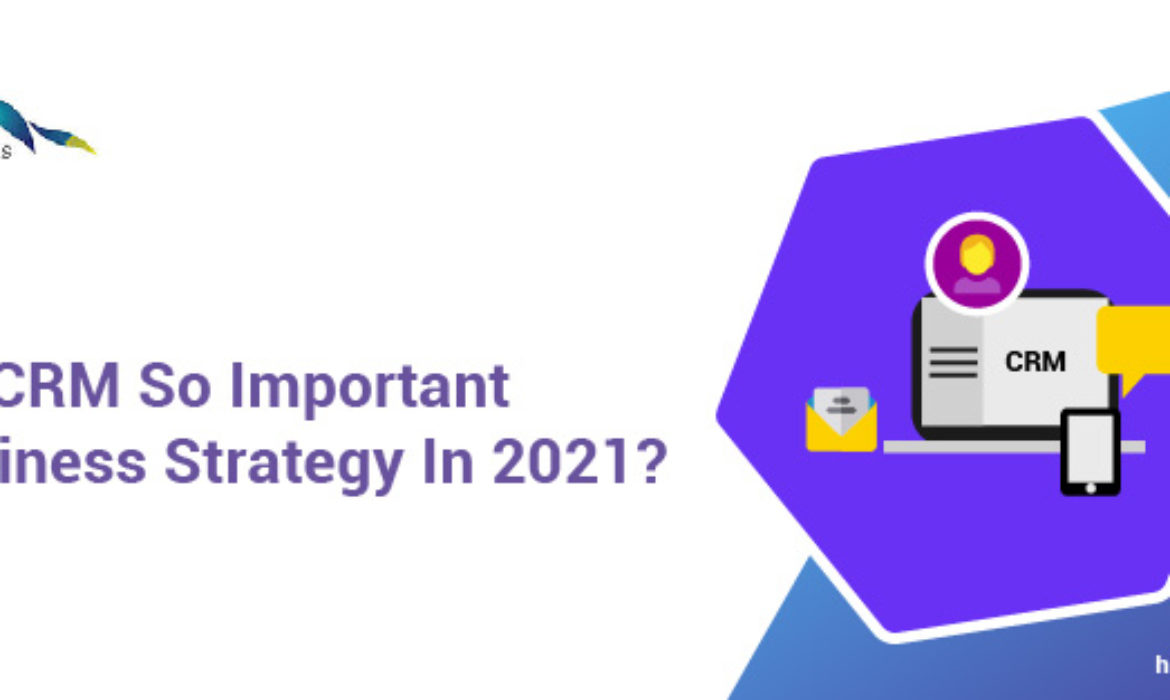Why is CRM so important for Business Strategy in 2021?
CRM stands for Customer Relationship Management. It’s a collection of tactics, tools, techniques, and technology used by businesses to develop, retain, and acquire customers. This tool helps in the marketing, sales, and service management of businesses.
Why CRM for Business Strategy in 2021?
Better knowledge of customers
A CRM is a powerful marketing tool first and foremost because it puts all of the information you need about your customers (or soon-to-be customers) at your fingertips. The CRM gathers and organizes information on your customers and prospects, including contact information such as name, address, and phone number, as well as demographic and transactional data.
CRM can help find new customers, the maintenance of current customers. It helps companies become more organized and effective through automation of different areas of the business and streamlines a number of processes.
Better segmentation of data
One of the most important features of CRM systems is the ability to drill down into customer data and segment it in order to personalize customer communications.
A strong CRM makes it simple to categorize all of the information you’ve gathered and create lists that you may use for specialized marketing campaigns or customer service. There’s no use in wasting time and money on those who aren’t interested in the product or service. Instead, you can focus your time and attention on specific lists to achieve the best results.
Better customer retention
With a CRM, your customer service team gets access to all of a user’s interactions with your company, allowing you to more effectively handle complaints and predict and resolve issues before they become a major issue for your organization.
Better anticipation of needs
When upselling or cross-selling, you may use a CRM to create a more effective sales process by anticipating what a customer will respond to best. From the data, you can confidently predict what items they’re most likely to purchase, including what they’ve previously purchased when they purchased it, and what other items were in their basket.
Better communication
When a customer contacts a business, they expect a quick answer. In fact, consumers expect a response to questions and complaints on social media within 24 hours, and this high level of service is expected across all communication platforms. With customized templates, a CRM helps you to reply quickly to customers’ initial inquiries.
Better data protection
When collecting client data, a CRM ensures that your company is GDPR compliant (General Data Protection Regulation). Manually collecting and storing data opens you to the risk of making a mistake, which could result in hefty fines.
How Does CRM Work?
Artificial Intelligence (AI)
AI is becoming a central part of Customer Relationship Management (CRM). Artificial Intelligence (AI) can help companies in automating routine tasks, providing quick replies to customers, and providing accurate insights to help businesses grow.
Sales Tools
You can use a CRM Sales tool to keep track of customer and prospect contact information in one place, as well as identify sales opportunities, track service issues, and manage marketing campaigns.
Types of Customer Relationship Management
Businesses have multiple types of CRM applications to choose from, most CRM software focuses on three primary categories listed below;
- Operational
- Analytical
- Collaborative
Operational CRM
Marketing, sales, and customer support are all part of operational CRM, which provides a holistic framework for customer-related business activities. Develop individual customer accounts or use imported contact spreadsheets to create campaigns, and update accounts after each customer interaction.
Analytical CRM
The primary goal of analytical CRM is to analyze customer data in order for management to get a better understanding of market trends and customer needs and wishes. Customer satisfaction is the goal of analytical CRM.
Collaborative CRM
Collaborative CRM aims to improve the customer experience while also promoting cross-department collaboration.
Conclusion:
CRM is a great tool for businesses to improve not only customer satisfaction but also efficiency. CRM will help you get a complete picture of your customers, increase efficiency in data processing, and improve sales forecasting.
-Bluefox Technologies

